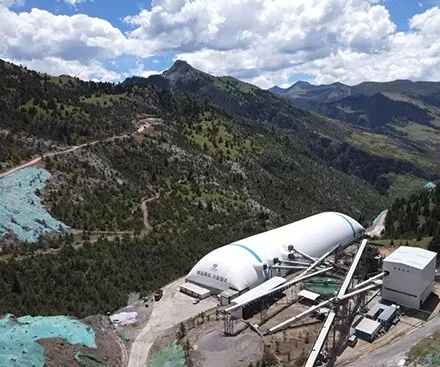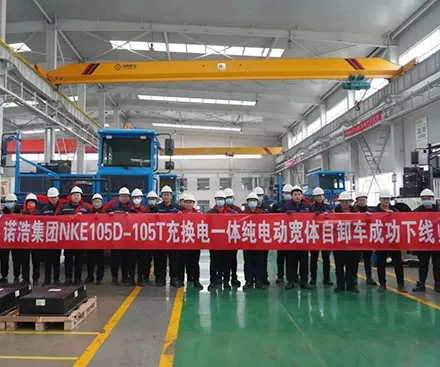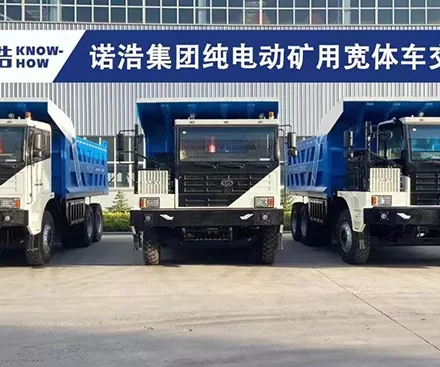Dump trucks are essential for transporting materials in construction, mining, and other heavy-duty industries. As the industry evolves, so does the technology behind these powerful machines. The choice between electric drive and mechanical-diesel dump trucks is a significant consideration for many operators. This article explores the key differences between these two types of dump trucks, including their advantages and disadvantages, to help you make an informed decision.
Mechanical-diesel dump trucks have been the industry standard for decades. These trucks are powered by diesel engines that use internal combustion to generate power. The engine's output is transmitted to the wheels through a mechanical drivetrain, which includes components like gears, shafts, and differentials.
Electric drive dump trucks are a newer technology in the industry. These trucks are powered by electric motors and use batteries to store and supply energy. Instead of a mechanical drivetrain, electric dump trucks utilize an electric drivetrain that directly powers the wheels.
Mechanical-diesel dump trucks are known for their high power and torque, which are crucial for handling heavy loads and rough terrains. Diesel engines provide strong pulling power and can operate efficiently even under strenuous conditions.
Electric drive dump trucks also offer impressive power and torque. Electric motors provide instant torque, which can be advantageous for quick starts and climbing steep grades. However, the overall power output might still be lower compared to some high-performance diesel engines.
Diesel engines are generally more fuel-efficient for long-haul operations due to the energy density of diesel fuel. However, fuel costs can be high and are subject to fluctuations.
Electric drive dump trucks have lower operating costs due to the reduced need for fuel. Electricity is often cheaper than diesel, and electric trucks have fewer moving parts, which can result in lower maintenance costs.
Mechanical-diesel dump trucks emit exhaust gases, including CO2, NOx, and particulate matter, contributing to air pollution and greenhouse gas emissions. Strict emissions regulations are increasingly impacting diesel truck operations.
Electric drive dump trucks produce zero tailpipe emissions, making them a more environmentally friendly option. However, the environmental impact depends on how the electricity is generated. If the electricity comes from renewable sources, the overall impact is significantly reduced.
Diesel engines generate substantial noise, which can be disruptive in sensitive areas or urban environments.
Electric drive dump trucks are quieter, reducing noise pollution on job sites and making them more suitable for operations in noise-sensitive areas.
Mechanical-diesel dump trucks require regular maintenance, including oil changes, filter replacements, and inspections of the mechanical components. The complexity of the drivetrain can lead to higher maintenance costs over time.
Electric drive dump trucks have fewer moving parts and require less frequent maintenance. Battery systems and electric drivetrains typically involve less wear and tear, potentially reducing long-term maintenance costs.
Diesel engines are known for their durability and can last many years with proper maintenance. However, they are subject to wear and tear from mechanical components.
Electric motors generally have a longer lifespan due to fewer moving parts. Batteries, however, may need replacement after a certain number of charge cycles, which can be a significant factor in the truck’s overall longevity.
Mechanical-diesel dump trucks generally have a lower upfront cost compared to electric drive trucks. This is due to the mature technology and widespread availability of diesel engines.
Electric drive dump trucks tend to have a higher initial purchase price. The cost of advanced technology and battery systems contributes to the higher upfront investment.
While electric drive dump trucks have a higher initial cost, their lower operating and maintenance costs can lead to a lower total cost of ownership over time.
Mechanical-diesel dump trucks might be cheaper initially but can incur higher costs in fuel, maintenance, and repairs throughout their lifespan.
Choosing between electric drive and mechanical-diesel dump trucks depends on various factors, including performance needs, environmental concerns, and budget constraints. Electric drive trucks offer significant benefits in terms of emissions, noise reduction, and lower operating costs. However, they come with a higher initial investment. Mechanical-diesel trucks provide strong performance and a lower upfront cost but may result in higher long-term expenses and environmental impact.
If you're considering upgrading or purchasing a dump truck, carefully evaluate your operational needs and financial situation. For more information or assistance in selecting the right truck for your needs, feel free to contact us. As a trusted supplier, we can help you find the best solution for your hauling requirements.
1. What are the main advantages of electric drive dump trucks?
- Electric drive dump trucks offer lower operating costs, zero emissions, and reduced noise pollution.
2. Are mechanical-diesel dump trucks still relevant?
- Yes, they remain relevant due to their proven performance, lower initial cost, and established infrastructure.
3. How does battery life affect the electric dump truck's total cost of ownership?
- Battery life impacts the total cost of ownership since batteries may need replacement after a certain number of charge cycles.
4. What should I consider when deciding between electric and diesel dump trucks?
- Consider factors such as performance needs, environmental impact, maintenance costs, and budget.
5. Are there any incentives for purchasing electric dump trucks?
- Some regions offer incentives for purchasing electric vehicles, including tax credits and grants, which can help offset the higher initial cost.

Jul. 23, 2022
View More
Jun. 15, 2022
View More
Jun. 01, 2022
View More